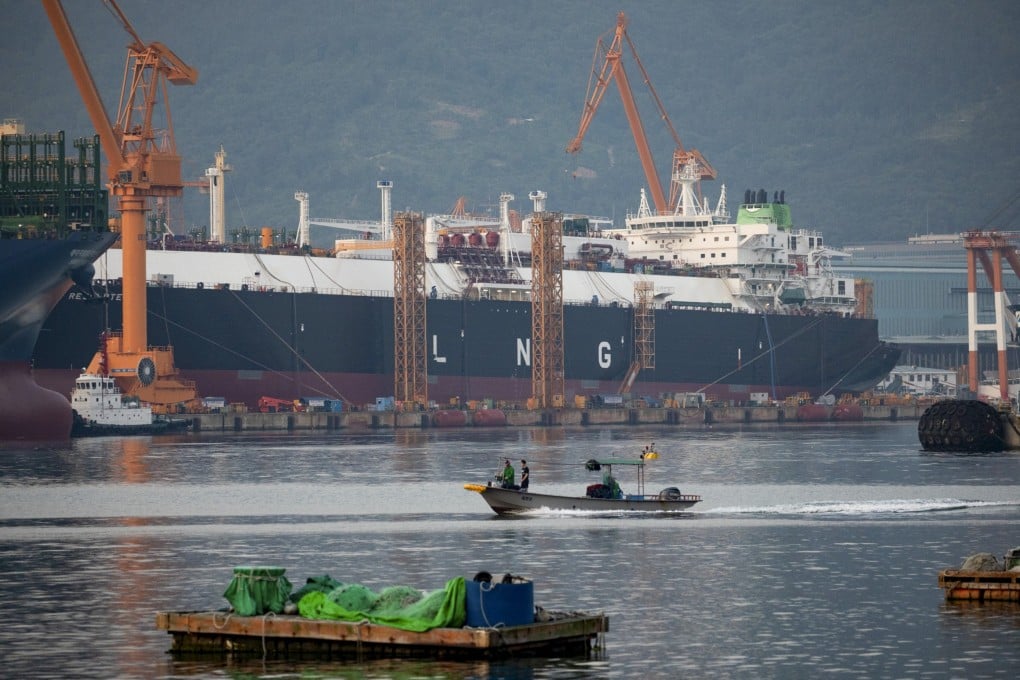Can China’s shipbuilding tech catch up with South Korea, and what role is the environment playing?
- Facing competition with South Korea, Chinese shipbuilders are spending more to develop eco-friendly vessels and carve out a bigger piece of the shipping industry
- A global green transition means most of the currently operating ships will not be able to enter ports in the future, raising the urgency for rapid technological advancements

China and South Korea are upping the ante in their bid to seize and maintain a greater share of the shipbuilding industry – a sector that Beijing sees as critically important in climbing the industrial chain as it bids to narrow a technological gap with Seoul.
But while China has been making inroads in its production of technologically and environmentally advanced liquefied natural gas (LNG) tankers, analysts expect that it will still take years for the country to substantially challenge South Korea’s long-held dominance.
Meanwhile, however, some are talking up the prospects of cooperation between the world’s two shipbuilding leaders that could benefit the entire global industry.
“In terms of bulk carriers or container ships, there is almost no technological gap [between South Korea and China],” said Woo Jong-hun, a professor of naval architecture and ocean engineering at Seoul National University (SNU). “But there are a lot of differences in vessels like LNG carriers.”
According to data released by Clarkson Research, a British shipbuilding- and shipping-market analysis company, there were 79 global orders for shipping vessels placed in March. These ships totalled 2.44 million compensated gross tonnage (CGT), which marked a 3 per cent increase from February and a 49 per cent decrease from March 2022.